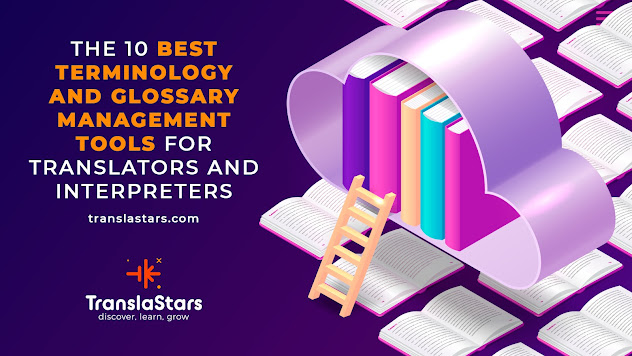Why SEO and SEA skills are a must for translators
Why SEO and SEA skills are a must for translators
"Everyone
talks about SEO and SEA localization, but really, what's the big
deal?"
If this question often crosses your mind, be sure to read the rest of this article.
You'll discover why 3 top-level SEO experts think SEO and SEA skills are crucial
for translators.
Are you ready? Let’s dive in!
Table of
contents
- But first, what is SEO?
- And what is SEA?
- What is the difference between SEO translation and SEO localization?
- 8 reasons why SEO skills are a must for translators
1. SEO skills make good money
2. Good
marketing strategies include SEO translation
3. SEO
skills add value to whatever specialization
4. Machine
translation doesn’t know about SEO
5. SEO
skills are another string to your bow
6. SEO translation
is fun and creative
7. SEO
translation guarantees instant feedback
8. SEO
skills help you optimize your own content
But first, what is SEO?
Search
Engine Optimization (SEO) involves improving a website so that search engines
like Google will rank it higher on their results pages.
Potential
clients and users can easily access SEO-optimized websites on the very first
results pages, whilst finding non-SEO-friendly websites can be more
challenging.
SEO experts
focus on keywords, titles, tags, page descriptions, and other attributes that
improve the searchability of a web page to help search engines understand what
the website is about and show it to users who are interested in a specific
topic.
And what is SEA?
SEA is an
acronym that stands for Search Engine Advertising.
Also known
as PPC (pay-per-click), SEA involves creating paid ads that combine keyword
strategy, meta description, budget, offer strategy, and the ad itself (text,
image, video, etc.).
SEA's most obvious example is Google Ads, which appear above all organic
results.
Paid ads are not exclusive to Google; platforms
such as LinkedIn, Twitter, Instagram, and Facebook also offer paid ads.
What is the difference between SEO translation and SEO localization?
Language
plays an important role in ranking better, and that’s when SEO translation
comes in handy.
In SEO
translation, you translate the content on your website so that even after it's been
translated into the target language, it still performs well in a search.
Keywords,
for example, play a crucial role in SEO. A title that has been SEO-optimized in
English may not still be considered optimized for search engines if it is
directly translated into another language because the keywords in the title may
rank well in the new context.
On the
other hand, SEO localization is the process of translating website content,
keywords, and metadata into a specific locale paying great attention to cultural
references to rank high when search queries are performed.
Often,
localization involves removing wordplays, metaphors, jokes, and idiomatic
expressions that don't work well target language and replacing them with their
culturally appropriate versions.
It is
important to consider what your client's goals are before choosing localization
or SEO translation. While SEO translation improves the website's searchability,
localization makes your brand more relatable to the audience your client
serves.
8 reasons why SEO skills are a must for translators
SEO skills make good money
“SEO
translation and localization are in very high demand globally and there’s good
money in the industry”, says María Scheibengraf, award-winning Spanish SEO
Translator and content writer, localization influencer, and author of The SEO
Translation Bible.
In fact, in
2019, U.S. companies spent 73.38 billion dollars on SEO according to a report by Borrell Associates.
Considering that over 60% of the internet is in English but 76% of consumers prefer to buy products where
information is provided in their native language, you can see that the SEO
translation industry has a bright future.
Good marketing strategies include SEO translation
“Marketing
content and localization is no longer about creating a nice piece to read”,
says Alfonso González Bartolessis, Localization Manager at Sinch Email and SEO localization
expert. “It needs to comply with SEO requirements to obtain the results we or
our customers are looking for (more traffic, conversions, leads generation, etc)”.
“Also, SEO
is free, and marketers know it: that’s why a lot of their effort goes into
shaping comprehensive marketing strategies that include SEO optimization. SEO
translation and localization certainly come into the mix if you operate in
other countries”, adds María Scheibengraf.
SEO and SEA skills add value to whatever specialization
“SEO skills
can really add value to your specialization,” says David García, SEO translation and content creation
expert. “If you specialize in automotive
translation, for example, you will be able to offer SEO
translation for the website of a car maker”.
“You need
to think of SEO as a skill you can market and invoice”, adds Alfonso González
Bartolessis. “This is not part of your ‘normal translation’ workflow but a
skill that must be paid apart and an important source of income”.
PRO TIP: Do you want to become a rockstar in SEO/SEA localization?
Get your
seat to the best Expert course on SEO localization
and content creation created by Alfonso González Bartolessis, María Scheibengraf and David
García to learn how to apply SEO skills to your translations: you won’t
regret it!
Machine translation doesn’t know about SEO or SEA
“I think we
cannot deny machine translation is getting better for some types of texts. The
good news for translators is that machine translation does not know about SEO
or SEA”, explains David García, suggesting that might offer SEO as an add-on
for services such as post-editing machine translation.
SEO and SEA skills are another string to your bow
“We often
talk about not putting all your eggs in the same basket when referring to the
clients we work with, and we can apply the same approach with our services”,
says David García. “At the end of the day, translators love working with words,
and they can become great SEO content writers”.
“Moreover,
SEO translation and localization combine more than just language: they touch
many different areas, such as coding, design, and UX. While you learn about SEO
you also acquire so many other skills you can transfer”, explains María
Scheibengraf.
PRO TIP: UX, UI… does it all just sound Greek to you?
Learn what User Experience Design and its sub-disciplines UX Writing and UX Research are and how you can leverage their techniques and principles to become a better localization specialist thanks to UX/UI Localization Specialist Eva Katernberg’s course "UX Writing and Research for Localization".
SEO translation is fun and creative
“SEO
translation is just so fun, it lets you experiment, I just love it!”, says María
Scheibengraf, who enjoys the creative side of the process.
In fact, translating SEO and SEA content isn’t just about research, it’s a lot closer to transcreation and copywriting than you might think!
SEO and SEA translation guarantees instant feedback
“SEO
translation is one of the fields in translation when your work can be
quantitatively measured. Most translations are subjective, but when you
translate SEO content, you either rank or you don't”, explains María
Scheibengraf, who enjoys getting instant feedback on what she’s doing.
SEO and SEA skills help you optimize your own content
As a
professional translator, having a multilingual website is a must if you don’t
want to leave out a wide pool of potential customers.
“Translators
need to know about SEO from a linguistic, content creation, and technical
perspective and they need to understand the results they can obtain when
applying SEO skills to their content”, explains David García.
PRO TIP: Want to get to know how to build your professional website and market your services efficiently?
You
don’t know which one of our courses might be the best for you?
Get in
touch with us at manager@translastars.com to get personalized advice and
support!


.jpg)
.jpg)




Comments
Post a Comment